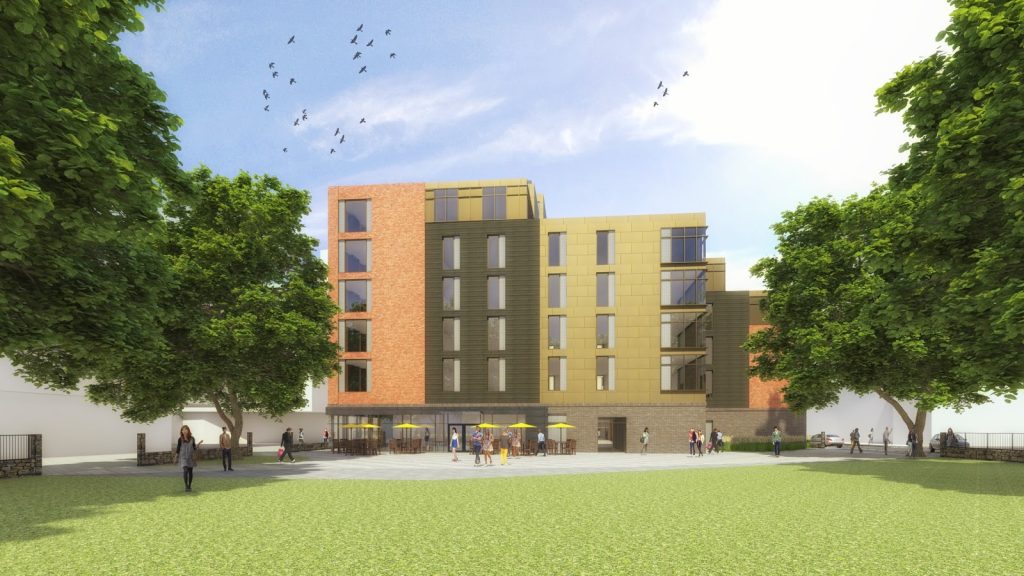Crosslane Student Developments, a part of the Crosslane Group, has formally submitted a full planning application which would lead to the creation of a new purpose-built student accommodation scheme. This proposed student accommodation scheme will be located on the north-westerly side of Howard Gardens in Cardiff.
The plans that have been submitted depict a high-quality residential building that has stepped heights of four and six storey, with an increase to ten storeys in one corner. The plans show that these buildings will deliver accommodation for around 400 students. The ground floor of this building will consist of a reception and management suite as well as shared communal facilities that can be used by residents such as a common room, study hub and gym.
The location for this proposed development will occupy half of the square on the north west of Howard Gardens. The site was once occupied by a bowling green and club pavilion which has been in a state of disrepair from lack of use for a number of years. The City of Cardiff Council has made the decision to sell this half of the square two years ago as it was not designated as public open space. From this, Crosslane has successfully achieves a preferred bidder status and the Council has been reviewing and agreeing on the proposed plans before the site is sold.
This redevelopment will enhance the area as well as complement the wider plans that have been laid out by the Council to improve this area of the city. These larger improvement plans include restoring and improving the park and the other side of the square to the proposed development site, which has also been out of use by the public for a number of years. Recent research carried out by Cushman and Wakefield has shown that demand continues to outstrip supply for student accommodation in Cardiff despite the creation of new purpose built developments in the city. Much of the new student accommodation being built in Cardiff has delivered self-contained studio apartments, however Crosslane’s plans for the site focus on the creation of cluster flats of between four and eight bedrooms with a shared kitchen and living room. This design it is thought would be more conducive to making friends and offers social and cultural opportunities as a part of their university experiences.


